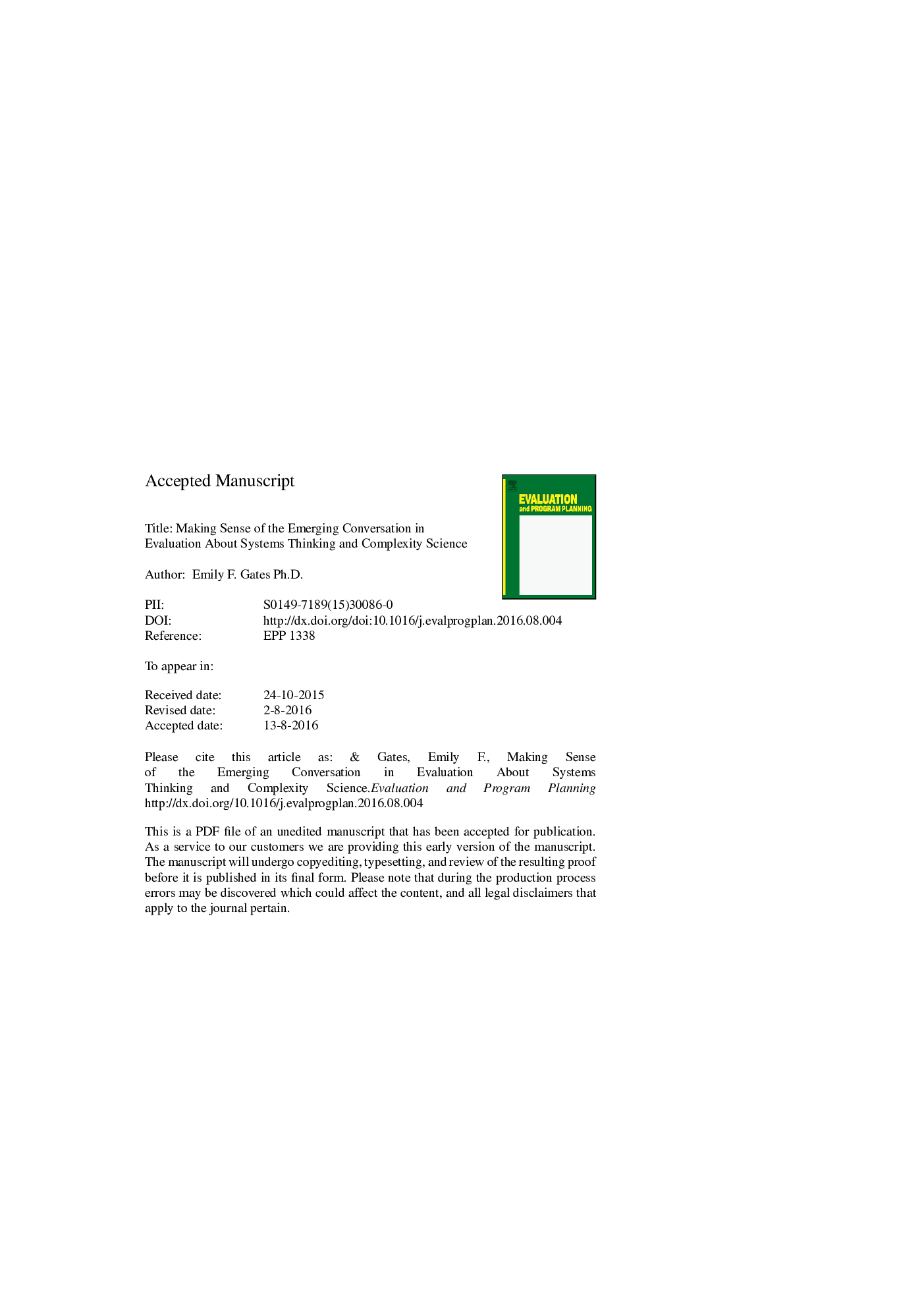| Article ID | Journal | Published Year | Pages | File Type |
|---|---|---|---|---|
| 6792474 | Evaluation and Program Planning | 2016 | 47 Pages |
Abstract
In the last twenty years, a conversation has emerged in the evaluation field about the potential of systems thinking and complexity science (STCS) to transform the practice of evaluating social interventions. Documenting and interpreting this conversation are necessary to advance our understanding of the significance of using STCS in planning, implementing, and evaluating social interventions. Guided by a generic framework for evaluation practice, this paper reports on an inter-disciplinary literature review and argues that STCS raises some new ways of thinking about and carrying out the following six activities: 1) supporting social problem solving; 2) framing interventions and contexts; 3) selecting and using methods; 4) engaging in valuing; 5) producing and justifying knowledge; and 6) facilitating use. Following a discussion of these issues, future directions for research and practice are suggested.
Related Topics
Health Sciences
Medicine and Dentistry
Public Health and Health Policy
Authors
Emily F. Ph.D.,
